HIGHLIGHTS
GET TO KNOW US
GET INVOLVED
MEDIA
REGIONS
California, Georgia, Chicago, North Carolina, New Orleans, Puerto Rico, Kentucky, Navajo Nation, Washington, D.C., Hawaii
INTERNATIONAL
CORE spent over a year in Pakistan supporting households like the Azeem’s who were impacted by devastating flooding in June 2022.
Mohammad and Arifa Azeem and their 7-year-old daughter, Gullan, lost everything when torrential monsoon rains and subsequent floods swept through the rural Dodha village in Pakistan. The Azeem family connected with CORE and a local partner, Riverside Development Organization (RDO), in the initial months after the 2022 floods, receiving critical support as their recovery needs evolved over time.
Today, nearly a year and a half later, the Azeem family lives in their repaired home, grateful for their newfound security. Their story is below.
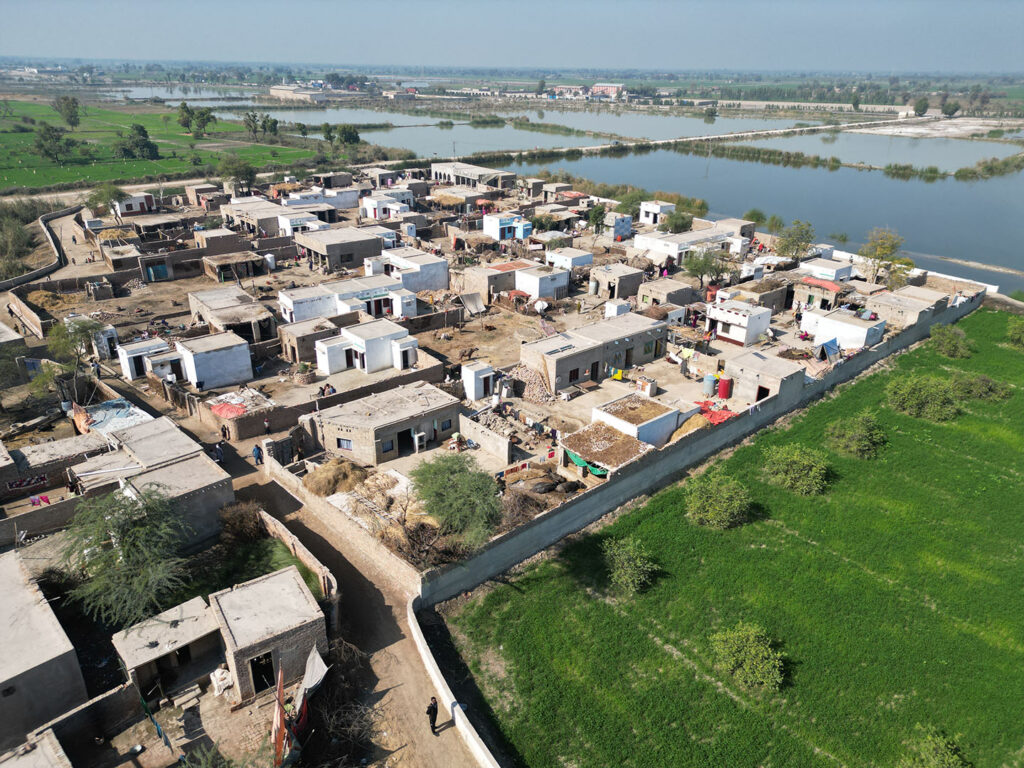
Aerial view of Dodha village nearly two years after historic floods submerged much of the area.
Dodha, a rural village in southeastern Pakistan, is tucked into the Noushero Feroz district in Sindh. The village is surrounded by vibrant green plots of land, where residents grow food and raise livestock. Only a few roads connect Dodha to neighboring villages.
Most villagers, including Mohammad, are laborers, masons, or agricultural workers who seek seasonal opportunities outside Dodha to support their families.
When historic floods inundated Pakistan in June 2022, the disaster that rapidly unfolded across Sindh was disproportionate and unimaginable, as most communities fall well below the poverty line. Rushing water swept away homes and basic infrastructure, carried away livestock, and submerged vital crops and farmland.
Mohammad recalls watching boats row down the flooded road to move through Dodha village. The marsh-like body of water that now lines one side of the village is a constant reminder of the unprecedented environmental devastation the community faced.
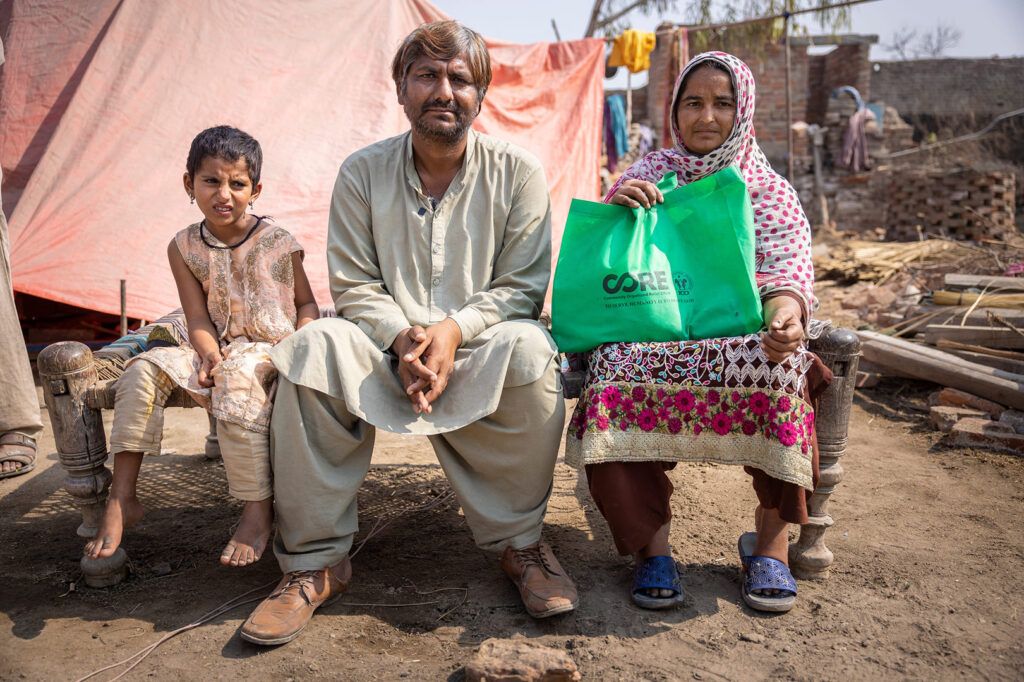
CORE met the Azeem family in 2022, when they received essential food and hygiene items.
Though the Azeem family found immediate safety, many villagers suffered tremendous personal loss. Mohammad, who CORE first met in 2022, had described this new reality at the time, “We are homeless…No lands or agriculture…We don’t even have a fan to run and sit comfortably. We don’t have anything.”
The Azeem family received essential food and hygiene items from CORE and RDO, including soap, lotion, flour, rice, ghee, and lentils. They felt gracious for the relief but were burdened by the numerous basic needs that still needed to be addressed in the months following the floods.
The Azeem family was living through the sweltering and humid summer in a tent without proper ventilation. Opportunities for work were scarce or inaccessible due to the widespread devastation. Sustainable sources for water and food and protection for livestock were unavailable. All considered, the village lacked vital infrastructure to prevent the catastrophic flood damage from occurring again.
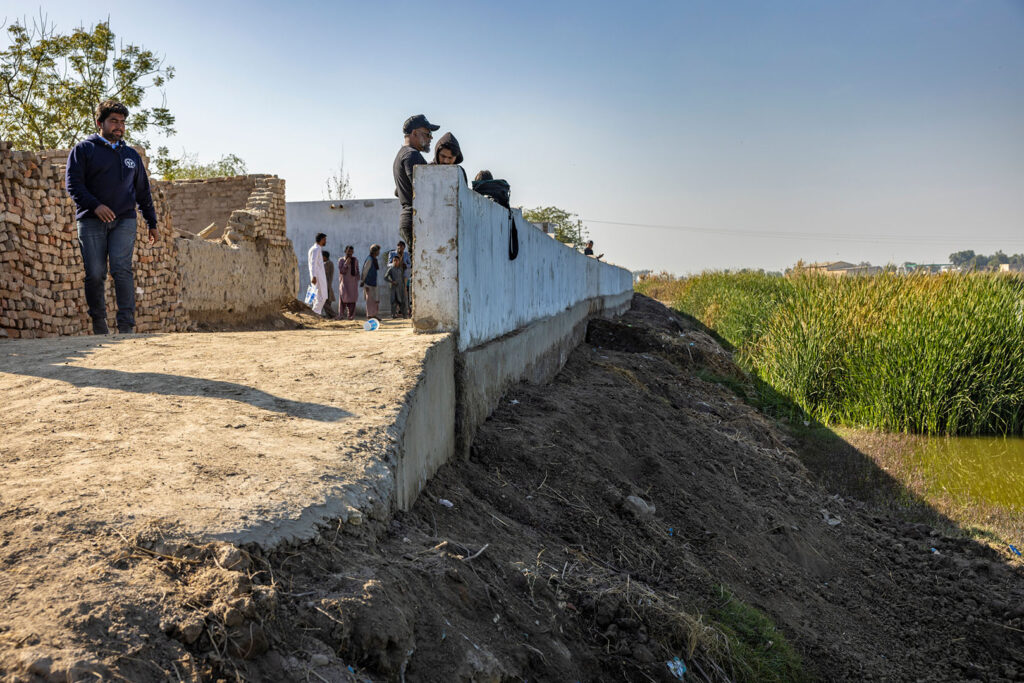
This protective bund wall was built around the perimeter of the village to reduce the chance of future floods from entering Dodha village.
Over the next year, CORE continued its work with RDO to holistically address the village’s vulnerabilities to future climate disasters. We employed local laborers to build new homes and repair those that were damaged, built a protective bund wall around the perimeter of the village, and installed or reconditioned water tanks and pumps.
These interventions restored a sense of ease and security for the Azeem family. Their new home has brought them peace and relieved their concerns about surviving in a tent during extreme seasonal weather. Arifa uses the water pump that CORE installed near her family’s home to wash clothes and dishes. She works too, making rope for cots in the village.
Mohammad found work helping construct the large bund wall meant to reduce the chance of future flood waters entering Dodha village. He referred to the wall as the most important because it also allows Gullan and the other children to roam freely around the village.
“Earlier we were afraid to send our children out, but now we are satisfied that our children can go out safely,” Mohammad shared. “We used to cry and were afraid that our children might go to the water pond or somewhere else… [We have] already sustained enough loss.” Residents also use the wall to hang laundry and as a place to socialize.
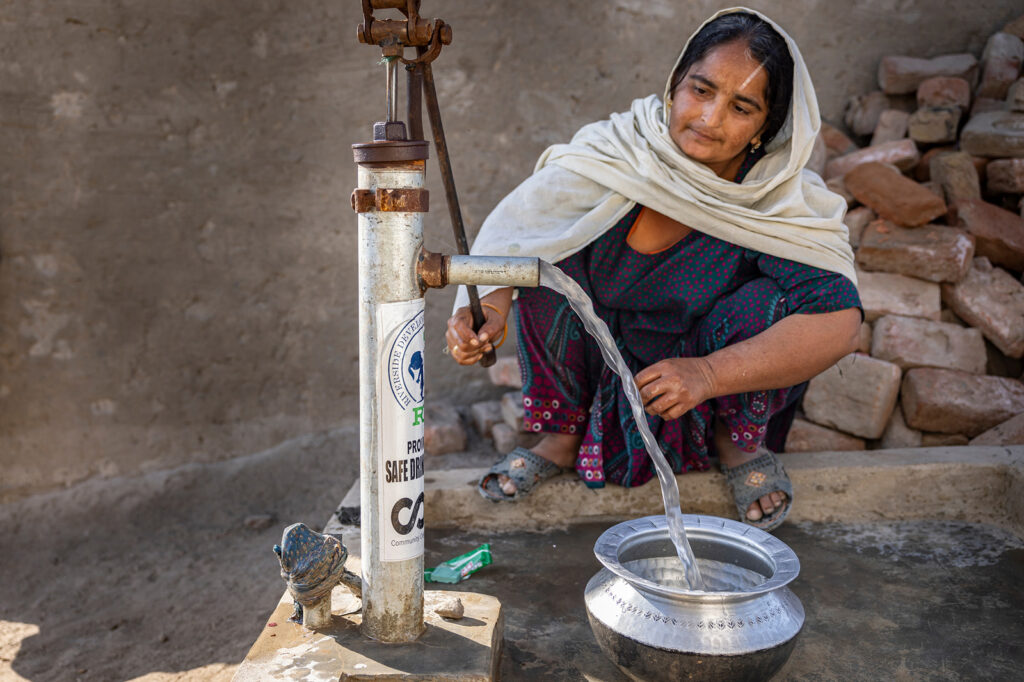
Arifa Azeem collects water from the new water pump installed outside their home.
This is just one example of CORE’s impactful work to address climate change and strengthen community resilience to future climate disasters globally. With recent interventions across California, Haiti, and New Orleans, we are committed to mitigating the impact of disasters on vulnerable populations.
HIGHLIGHTS
GET TO KNOW US
GET INVOLVED
MEDIA

REGIONS
California, Georgia, Chicago, North Carolina, New Orleans, Puerto Rico, Kentucky, Navajo Nation, Washington, D.C., Hawaii
INTERNATIONAL
CORE is a charitable 501(c)(3) nonprofit organization. Federal tax ID: 27-1703237.
© 2024 | CORE – Community Organized Relief Effort | +1 (323) 934 4400
910 N Hill St Los Angeles, CA 90012